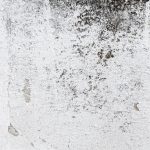
Mold in your home can cause a variety of health problems, especially in humid climates like Cape Coral, Fort Myers, and Naples, Florida. Mold exposure affects everyone differently, and some people may be more sensitive to mold than others. In this blog, we’ll explore common symptoms of mold exposure and how to recognize if mold in your home is affecting your health.
Common Symptoms of Mold Exposure
Mold releases spores into the air, which, when inhaled, can trigger a range of symptoms. Depending on your sensitivity, the severity of exposure, and the type of mold, symptoms can vary from mild to severe. Here are the most common signs that mold could be impacting your health:
1. Respiratory Issues
One of the most noticeable effects of mold exposure is respiratory problems. Mold spores can irritate the lungs and airways, making breathing difficult, especially for people with asthma or other respiratory conditions. Symptoms include:
- Chronic coughing
- Wheezing
- Shortness of breath
- Chest tightness
For homeowners in humid areas like Bonita Springs and Lehigh Acres, where mold can grow quickly in damp conditions, keeping an eye on respiratory health is crucial.
2. Allergic Reactions
Many people are allergic to mold spores, which can lead to common allergy symptoms such as:
- Sneezing
- Runny or stuffy nose
- Itchy or watery eyes
- Skin rashes or hives
If you experience these symptoms while at home but feel better after leaving the house, mold may be the cause. Allergy-like symptoms are particularly common in areas prone to frequent humidity, like Naples and Marco Island.
3. Headaches and Migraines
Mold can release toxins, known as mycotoxins, that may contribute to headaches and migraines. Exposure to moldy environments can lead to persistent headaches, often accompanied by other symptoms such as fatigue or difficulty concentrating.
For residents in Fort Myers and Punta Gorda, where water damage from storms is common, persistent headaches could be a sign that mold has begun growing in hidden areas like behind walls or under flooring.
4. Fatigue
If you’ve been feeling unusually tired, mold could be contributing to your fatigue. Continuous exposure to mold can cause your body to work overtime to fight off the allergens, leaving you feeling drained. Fatigue from mold exposure is often accompanied by other symptoms like headaches, difficulty sleeping, or brain fog.
For families in coastal areas like Sarasota or North Port, where mold growth is more frequent, prolonged fatigue may be linked to mold exposure at home.
5. Skin Irritation
Mold exposure can cause skin reactions, particularly for those with sensitive skin or mold allergies. Direct contact with mold or mold spores can result in itchy, red skin, hives, or even eczema flare-ups. Mold may be present in your home if you notice your skin condition worsens when indoors.
Skin irritation caused by mold is often more common in damp environments, such as bathrooms, basements, or attics in homes in Cape Coral or Naples.
6. Worsening Asthma Symptoms
If you have asthma, exposure to mold can cause symptoms to flare up. Mold can trigger asthma attacks or make it difficult to control asthma symptoms like wheezing, shortness of breath, and chest tightness. For those living in Fort Myers or Lehigh Acres, where moisture levels are often high, managing mold is critical for reducing asthma-related risks.
Who Is Most at Risk?
While mold exposure can affect anyone, certain groups are more vulnerable to its health effects, including:
- Infants and children: Developing respiratory systems can be more sensitive to mold spores.
- Elderly individuals: Older adults may have weaker immune systems, making them more susceptible to mold-related health issues.
- People with pre-existing respiratory conditions: Asthma, chronic bronchitis, or allergies can be worsened by exposure to mold.
- Individuals with weakened immune systems: People with compromised immune systems may be more prone to infections caused by mold.
How to Check for Mold in Your Home
If you or your family members are experiencing any of the symptoms mentioned above, it’s essential to investigate whether mold is present in your home. Here are some signs that your home may have mold:
- Musty odors: A persistent musty smell, especially in enclosed areas like basements or crawl spaces, is a strong indicator of mold.
- Visible mold growth: Mold can appear as black, green, or white patches on walls, ceilings, or around windows and doors.
- Water damage: Homes in Naples, Cape Coral, and other areas with high humidity or recent flooding should be inspected for water damage, which can lead to mold growth.
When to Call a Professional
If you suspect mold is affecting your health, it’s important to act quickly. Mold can grow in hidden areas like behind walls or under carpets, making it difficult to detect without professional help. At QCI Online, we offer professional mold inspections and eco-friendly mold remediation services to homeowners in Cape Coral, Fort Myers, Naples, and surrounding areas.
Our experts use advanced technology, such as thermal imaging, to detect mold in hard-to-reach places. Our chemical-free mold removal methods ensure your home remains safe and healthy for you and your family.
Contact QCI Online for Mold Inspections and Removal
If you’re experiencing any of the health symptoms mentioned above or suspect mold may be present in your home, don’t wait. Call QCI Online for a free mold inspection. Our experienced team is dedicated to providing safe, effective mold remediation in Cape Coral, Fort Myers, Naples, and nearby cities.
Location: Cape Coral, FL
Contact: (239) 777-2875
Website: QCI Online
Take control of your health and home by scheduling a mold inspection today!






